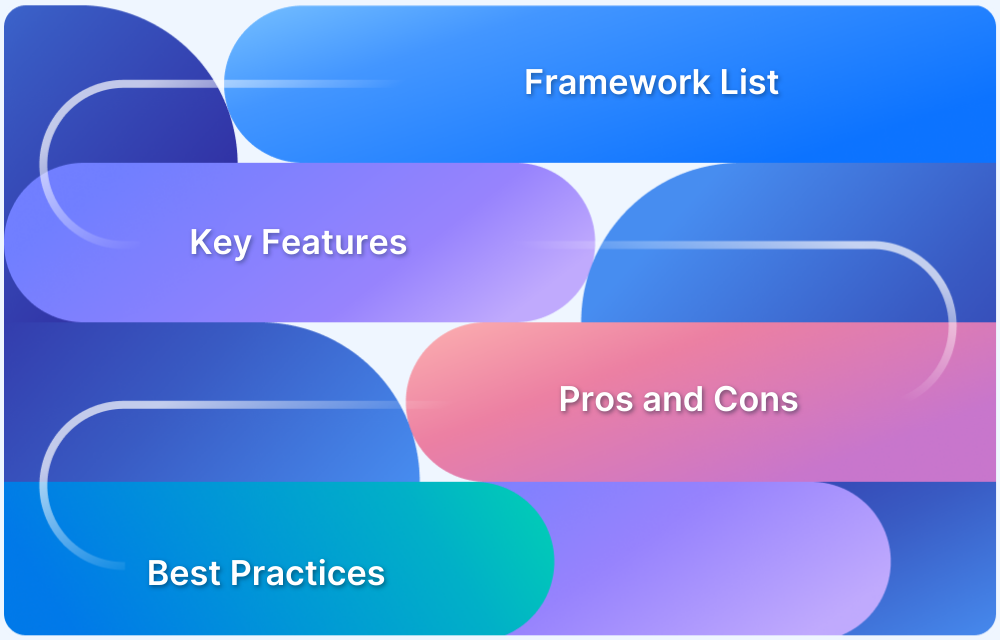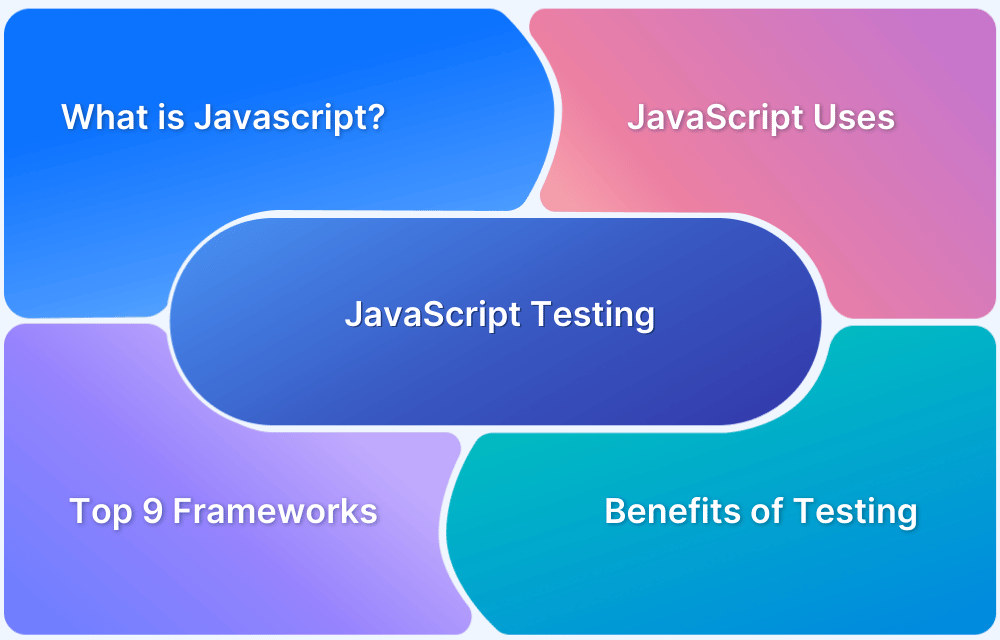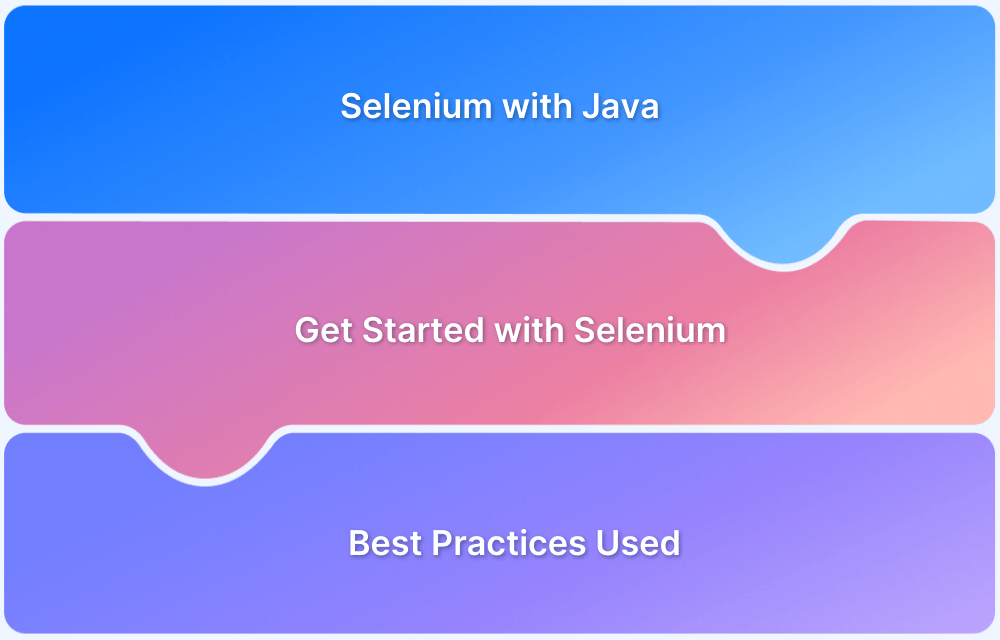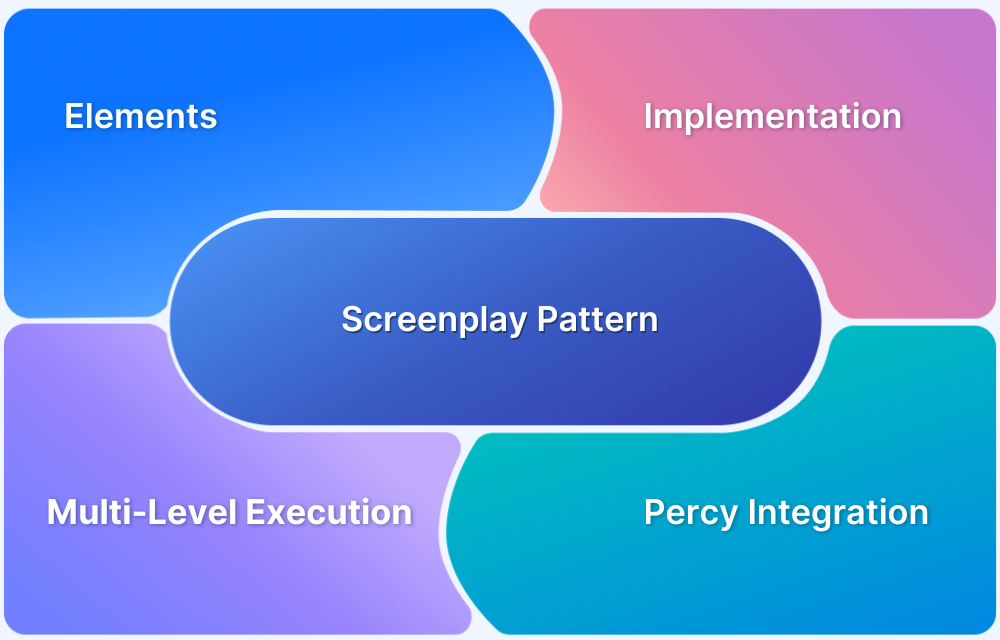Testing software before its release is crucial to the software development life cycle. Finding various shortcomings and fixing them before the final release saves a lot of costs for the organizations. Although the entire process of end-to-end testing can be a little tedious, testing frameworks provide extensive support through various features to save time. So let’s take a look at what exactly are testing frameworks and how they can be useful for end-to-end testing of any software.
Overview
What is a Java Testing Framework?
It includes the guidelines to be followed while creating test scripts using Java. It also helps to standardize test suites and enforce consistency.
Top Testing Frameworks
- Selenium – Comes with better integration and cross-browser compatibility.
- JUnit – Broadly used for unit testing with simple setup
- TestNG – Versatile, adds flexibility and supports parallel execution
- SerenityBDD – Automated Acceptance Testing in BDD, helps map requirements or user stories to tests.
- Mockito – Mocking library to isolate units under test.
This article lists out the top Java frameworks, what they offer, and when to pick them.
What is a Java Testing Framework?
Java Testing Framework is a set of guidelines that must be followed while creating test scripts using Java during the Quality Assurance of software. These guidelines or rules define the basic structure of the tests and strategy for the entire testing cycle. It not only fulfills an efficient strategy for testing the software, it structures or formulates a guided blueprint for the entire process. Some of the guidelines that may be included in a Java testing framework are Test Data Information, Scripting Guidelines, Test Results, Repositories, etc.
Let’s take a look at some of the features/benefits of an efficient Java testing framework are:
- Cost-Effective – A Java testing framework can help a project in cost management, by reducing the waste or over-expenditure that may be caused by resource allocation on shortcomings that may arise due to poor quality management approaches in the project.
- Time Efficient – The time saved by formulating structured and guided test cases backed by rules and guidelines makes sure that the quality management is top-notch.
- Maximized Automation – The usage of test frameworks eventually helps in reducing the involvement of human resources in the testing environment – by automating the entire process efficiently.
Now that we know, what testing frameworks are, let’s take a look at the Best Java Testing Frameworks available for Quality Assurance professionals working with Java programming language.
Top Java Testing Frameworks and Tools
Here is a list of 5 Top Java Testing Frameworks every Developer and Tester must know –
1. Selenium
Selenium is an open-source software testing tool for browser automation. It creates test scripts written in Java, Python, etc to write automation tests for web applications. Selenium comes with Selenium WebDriver, Selenium Grid, etc to create efficient automation tests on various browsers.
Some of the features of the Selenium testing framework are as follows:
- Selenium can be used as a data-driven, keyword-driven as well as a hybrid testing framework.
- The selenium tests can be executed in various operating systems including Windows, macOS, Android, iOS, etc.
- Supports automation testing, browser automation, and cross-browser testing.
- Comes with better integration and ease of access to learn and create tests.
When to use Selenium?
The developers can go for Selenium for the following requirements:
- Cross-browser testing
- Browser Automation Testing
Run Selenium Tests on Real Devices
2. JUnit
JUnit is an open-source foundation of testing frameworks on the Java Virtual Machine. The aim of the JUnit testing framework primarily focuses on efficiently creating and executing unit testing for an application. The JUnit testing framework establishes a Test Engine API that discovers and executes the unit tests on the testing framework platform.
Some of the features of JUnit are as follows:
- JUnit Platform Suite Engine that supports the execution of test suites from any test engine using the JUnit platform.
- It gets support in various IDEs like VSCode, IntelliJ IDEA, etc.
- JUnit provides a console launcher to launch the JUnit platform from the Java console.
- High-efficiency unit tests, with an ability to provide self-verifying tests with test assertions.
When to use JUnit?
The developers or QA Analysts can go for JUnit for the following requirements:
Also Read: How to run JUnit 4 test cases in JUnit 5
3. TestNG
Derived from JUnit, the TestNG testing framework is an easier version with a lot more functionalities that include annotations, arbitrary thread pools to run tests, etc. The TestNG testing framework is versatile and is designed to cover all the categories such as unit tests, functional tests, end-to-end tests, integration tests, etc.
Some of the features of TestNG are as follows:
- Multi-threaded code safe tests for your code
- Data-Driven Testing support
- Parameters support and powerful testing model
- Achieves flexibility by embedding BeanShell
- Runtime and Logging by default JDK functions, etc.
When to use TestNG?
The developers or the QA Analysts can choose TestNG for the following requirements:
- Unit Testing
- Functional Testing
- End to end Testing
- Integration Testing
4. SerenityBDD
SerenityBDD is an open-source testing framework that helps you in writing high-quality acceptance and regression tests. When you are using serenity, you define the requirements in terms of user stories for acceptance, these user stories are then automated using serenity using BDD tools like JBehave.
Some of the features of SerenityBDD are as follows:
- Flexible and easily maintainable tests
- Test Results Report – Illustrative, narrative reports with error messages, screenshots, etc.
- Functional Test Coverage Report – Gives you a report on how many requirements have been mapped with respect to testing.
- Project Progress Report – Keep tabs on how much of the project has been tested.
- Test Progress Report – Keep tabs on how much the applications have been tested.
When to use SerenityBDD?
The developers or the QA analysts can use SerenityBDD for the following requirements:
- Automated Acceptance Testing in a behavioral-driven development
- Regression Testing
5. Mockito
Mockito is an open-source testing framework that minimizes irrelevant interactions by using no expect-run-verify libraries. Mockito focuses on testing selected behavior by providing a simple, ready-to-use, and less expensive setup.
Some of the other features of Mockito are as follows:
- Mocks concrete classes and interfaces, and can be constructed using annotations.
- Verification support i.e exact-number-of-times and at-least-once
- Argument matchers for flexible verification with an option to create custom matchers as well.
- Clean verification errors support.
When to use Mockito?
The developers and QA Analysts can use Mockito for the following requirements:
- Unit Testing – Mockito can be used to create duplicate interfaces that will be used to test dummy functionalities in unit testing.
Read More: Top JavaScript Testing Frameworks
Conclusion
Software testing can be overwhelming for professionals in Quality Assurance, but the extensive features, structured rules, and guidelines provided by the testing frameworks can be a blessing in disguise since it helps in the efficiency of the project’s performance as well.
Finding the right Java Testing Framework that meets all the requirements successfully is pivotal for a software development process. But no matter which Java Test Automation framework you choose, it is essential to test your application on real devices and browsers under real user conditions for better accuracy. Real Device Cloud, like BrowserStack allows you to integrate different test automation frameworks and run your tests on 3000+ real devices and browsers for wider test coverage.
Be it cost management by reducing the time constraint and resource allocation on testing redundancies or speeding the process of quality assurance with an efficient strategy for creating test suites for the software applications, and efficient Test Automation framework can do it all.





